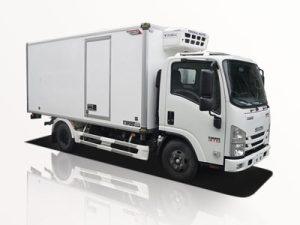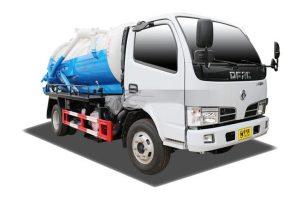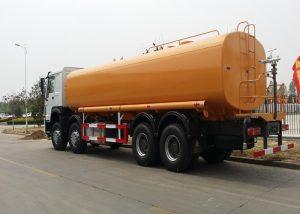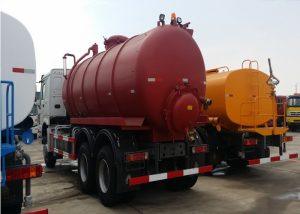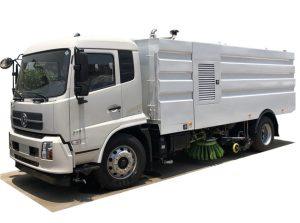Monday to Saturday - 8:00 -17:30
Understanding Aluminum Truck Fuel Tanks: The Optimal Choice for Your Vehicle
When it comes to the transportation industry, fuel efficiency and durability are crucial. One essential component that contributes to these aspects is the fuel tank. Aluminum truck fuel tanks have become a popular choice among truck owners and fleet managers for many reasons. In this comprehensive guide, we’ll discuss everything you need to know about aluminum truck fuel tanks, including their benefits, installation, maintenance, and more.
What are Aluminum Truck Fuel Tanks?
Aluminum truck fuel tanks are storage units specifically designed for transporting fuel in commercial and heavy-duty trucks. Made from high-quality aluminum, these tanks are known for their lightweight and corrosion-resistant properties, making them ideal for various trucking applications.
History and Development of Truck Fuel Tanks
Fuel tanks have been a crucial part of the automotive industry since the advent of motor vehicles. Originally made from steel, innovations in materials science led to the development of aluminum tanks in the late 20th century. This shift was driven by the need for lighter, more durable, and corrosion-resistant solutions.
Types of Aluminum Truck Fuel Tanks
There are several types of aluminum truck fuel tanks available, each designed to meet specific needs. These include:
- Standard Fuel Tanks: Commonly used for long-haul trucking and general transport.
- Custom Tanks: Designed for particular vehicle models or unique requirements.
- Auxiliary Tanks: Installed alongside the main tank to extend range.
- Drop-In Tanks: Pre-made tanks that fit into existing truck frames for easy installation.
Benefits of Aluminum Truck Fuel Tanks
Choosing aluminum for your truck’s fuel tank comes with several distinct advantages:
1. Lightweight Design
Aluminum fuel tanks weigh significantly less than their steel counterparts. This reduced weight contributes to better fuel economy and allows trucks to carry heavier loads without exceeding weight limits.
2. Corrosion Resistance
Aluminum has natural resistance to rust and corrosion, increasing the lifespan of the fuel tank. Unlike steel, it doesn’t require protective coatings that may wear off over time.
3. Durability
Aluminum tanks withstand impacts and vibrations, making them ideal for the rigorous demands of truck transportation. This durability translates to fewer repairs and replacements.
4. Easier Installation
Aluminum is easier to fabricate than steel, allowing for more customized designs and simpler installation processes. Many aluminum fuel tanks are designed to fit specific truck models seamlessly.
5. Environmental Impact
Aluminum is infinitely recyclable, making aluminum fuel tanks an environmentally friendly option. This contributes to overall sustainability efforts in the trucking industry.
6. Aesthetic Appeal
Many truck owners appreciate the sleek and modern look of aluminum tanks, which can enhance the overall appearance of their vehicles.
Installation Process for Aluminum Truck Fuel Tanks
Installing an aluminum fuel tank can seem daunting, but understanding the process makes it manageable. Here’s a step-by-step guide:
Tools Needed
- Wrenches
- Socket set
- Drill with appropriate bits
- Measuring tape
- Safety goggles and gloves
Step-by-Step Installation
- Preparation: Ensure the truck is parked on a level surface and securely supported.
- Remove the Old Tank: If replacing an old tank, disconnect fuel lines and unbolt it from its mount.
- Measure and Fit: Measure the new tank for proper fitment and position it in place.
- Secure the Tank: Use bolts and brackets to secure the tank to the frame tightly.
- Connect Fuel Lines: Reconnect any fuel lines and ensure seals are tight to prevent leaks.
- Test: Fill the tank and check for leaks before putting the truck back into operation.
Maintenance Tips for Aluminum Truck Fuel Tanks
Regular maintenance is crucial for prolonging the life of your aluminum fuel tank. Here are some tips to keep it in top condition:
1. Regular Inspections
Periodically check the fuel tank for signs of wear or damage, especially around fittings and connections. Look for corrosion, leaks, or dents.
2. Cleanliness
Keep the tank clean and free from dirt and debris. Consider rinsing it out periodically, especially if you notice sediment buildup.
3. Monitor Fuel Quality
Use high-quality fuel to minimize the risk of contamination. Regularly check your fuel filters and replace them as necessary.
4. Protect Against Impact
If your truck frequently traverses rough terrain, consider adding protective skids or guards around the fuel tank to reduce the risk of damage.
Aluminum Fuel Tanks vs. Steel Fuel Tanks
Choosing between aluminum and steel fuel tanks can be challenging. Here’s a comparison to help you decide:
| Feature | Aluminum Fuel Tanks | Steel Fuel Tanks |
|---|---|---|
| Weight | Lightweight | Heavy |
| Corrosion Resistance | High | Low (rusts easily) |
| Durability | Very durable | Durable but prone to dents |
| Cost | More expensive | Less expensive |
| Installation | Easy | Can be complex |
Real-World Examples of Aluminum Truck Fuel Tanks
Many companies have successfully transitioned to aluminum fuel tanks. Here are a couple of notable examples:
Example 1: XYZ Logistics
XYZ Logistics shifted to aluminum fuel tanks on their fleet of long-haul trucks. The change resulted in a 15% increase in fuel efficiency, significantly reducing operational costs.
Example 2: ABC Construction
ABC Construction replaced their steel tanks with aluminum options. Not only did they benefit from a lighter payload, but they also reported a decrease in maintenance costs due to the improved durability and corrosion resistance of aluminum tanks.
Frequently Asked Questions (FAQs)
1. How long do aluminum truck fuel tanks last?
With proper maintenance, aluminum fuel tanks can last over 20 years, making them a cost-effective choice in the long run.
2. Are aluminum fuel tanks more expensive than steel tanks?
Generally, yes. Aluminum tanks tend to have a higher upfront cost, but the long-term benefits often outweigh the initial investment.
3. Can I use aluminum fuel tanks for non-commercial vehicles?
Yes, aluminum fuel tanks can be used in various applications, including personal trucks and recreational vehicles.
4. Is it safe to install an aluminum fuel tank myself?
If you have some mechanical knowledge and the right tools, you can install an aluminum fuel tank yourself. However, it may be wise to consult a professional for safety and assurance.
5. Do aluminum tanks require special maintenance?
Aluminum tanks do not require special maintenance beyond regular checks for leaks and cleanliness. They are generally low-maintenance compared to steel tanks.
6. Can aluminum tanks be repaired if damaged?
Yes, small dents and scratches can often be repaired. For significant damage, it may be more practical to replace the tank.


